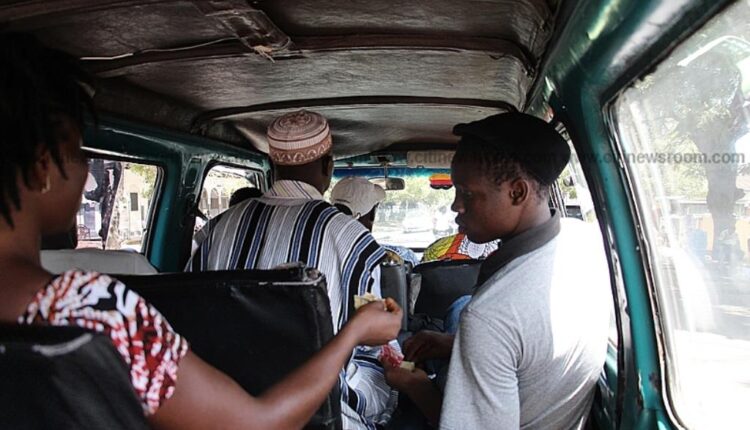Some commercial transport operators have announced a 30 per cent fare hike to be implemented on Friday, 18 March 2022.
The drivers have been pushing for fare increments for several months and have now decided to take action due to the rising fuel cost and other products.
“We, the members of the Private Commercial Transport Operators, wish to inform the commuting public of 30% increase in transport fares with immediate effect,” a joint statement by some transport unions said on Thursday, 17 March 2022.
The unions involved are the Committed Drivers Association, National Concern Drivers Association and the True Drivers Union.
According to the group, “A gallon of fuel which used to sell at the pump for GHC 27 cedis, has now jumped to almost GHC 36 cedis per gallon” necessitating a reaction to balance the losses that they are likely to incur.
“As the public may be aware, the government and the Coalition of Private Commercial Transport Operators are still engaged in marathon negotiations for an increase in transport fares. While we the operators are calling for 30% increase in transport fares, the government has put on the table 10%. As a result, the negotiation ended inconclusively and is expected to continue tomorrow, 18 February 2022.
“Sadly, before the scheduled meeting with the government could take place, fuel prices have been increased by about 30 pesewas per litre. Now a litre of fuel at some of the major filling stations are being sold for GHC 7.990.
“We wish to entreat our valued customers to bear with us as we need to save our business, sustain it and keep providing you with our critical services,” the statement added.
Meanwhile, the umbrella association for commercial operators, the Ghana Private Road Transport Union (GPRTU), is yet to comment on any fare increments.
The GPRTU and its constituents are still deliberating on the way forward with the government.
In a related development, the Price Stabilisation and Recovery Levy (PRSL), suspended from November 2021 to the end of January 2022, was reintroduced this month.
Fuel prices have gone up by at least 50 pesewas per litre at the pumps since 01 February 2022. Petrol and diesel are currently being sold at an average GH₵ 7.3 and GH₵ 7.4 per litre respectively.
The hike has been blamed on the rising cost of Brent crude on the international market, with some analysts projecting that fuel prices could hit GH₵8.0 per litre by March this year if the situation on the world market persisted.
A little over a month ago, drivers embarked on a nationwide strike over fuel prices and returned to work only after an intervention by the government.
What can be done to address the situation?
The Executive Secretary of the Chamber of Petroleum Consumers (COPEC), Duncan Amoah, told The Ghana Report, “We have a local refinery that we could have leveraged to get some fuel security at lower prices, but unfortunately, we don’t think there is a political will to refurbish the Tema Oil Refinery”.
Mr Amoah observed a fully functional refinery would cut the logistical cost, which adds to the price build-up by exporting crude to Europe to be refined before importing back to Ghana.
“They need to get TOR back on stream, and the need for political interference to be stopped holds the key for all for us,” he underscored.
Additionally, he cited the Bulk Oil Storage and Transportation Company Limited (BOST) failure in executing its mandate.
Mr Amoah explained that BOST is supposed to store huge volumes of fuel and release to the market to level prices and check shortages “without overstretching the already burdened Ghanaian taxpayer”.
However, “we do not see that function of BOST, and they are now focusing on trading…which was not the purpose of the BOST Act but to hold strategic stock”.











